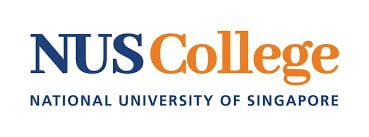If this is the first time you are visiting/editing this page, you can read the getting started guide for using Divi here. Divi is the theme we use for this site and the way it works is slightly different from plain-old vanilla WordPress.
The following guides might help you get started:
Adding Hyperlinks and Documents
This page is the homepage of the website. You can refer to the following guide on how to edit this page:
NHS4001
Critical Reflection


Module Introduction
[This module was formerly coded as USR4002 under the University Scholars Programme (USP), and it continues to satisfy the reflection tier requirement for all USP cohorts before the AY2022/23 intake.]
This module creates guided opportunities for you to critically reflect, in rigorous, evidence-based ways, on the experiences you’ve had during your time in the USP and at NUS.
In An Essay Concerning Human Understanding (1689), philosopher John Locke argues that “all Ideas come from Sensation or Reflection,” defining the latter activity as “the notice which the mind takes of its own operations, and the manner of them.” In other words, Locke believes that we gain knowledge not just (a) by “sensing” or experiencing things (say, when we enroll in a class and learn new information), but also (b) by looking back at those learning experiences and, in a meta-cognitive way, “taking notice” of how we learned those things. Locke’s definition further implies that reflection results in new “ideas.” Reflecting does not simply entail going back to a previous learning experience and reporting on what we already learned then; rather, reflection would be a new “meaning-making” moment during which we strive for further, deeper insight into our experiences.
This module proceeds from the intertwined beliefs—articulated by Locke, but shared by other education theorists from various eras and traditions of thought—that reflection is an essential part of learning, and that reflection is a meaning-making process. Thus, while reflection usually can only occur after some preliminary learning experiences (and is thus temporally “after”), it is by no means an afterthought in the metaphorical sense. The class is also predicated on the notion that reflection is intentional. That reflection is a form of learning is of course a guiding principle of the USP as a whole, though we are probably not alone in this. But many education environments seem to expect students, near the end of their time at NUS, to “naturally” look back on and synthesize all that they have learned. In comparison, this USP Senior Seminar functions as a dedicated and explicit space in which you will intentionally make new meaning out of your previous learning experiences. Moreover, because this is the capstone module for the USP, a multi- and inter-disciplinary programme, it also inflects and focuses the definition of “reflection” in a specific way. While it is possible to reflect on a single learning experience, in this module you will reflect by connecting and resituating your multiple learning experiences, and in some cases, by collaborating to connect the experiences of multiple people in the USP community. The learning experiences will be the ones you’ve accumulated during your time in the USP, and in your majors and other programmes of study at NUS. These learning experiences include both classroom experiences (e.g., academic, for-credit modules), as well as informal out-of-the-classroom experiences.
The class is taught in sections of approximately 20 students each. Each section generally subscribes to the axiomatic beliefs, outlined above, about reflection, though each may work towards the module’s learning outcomes in different ways. While Locke asserts the importance of reflection to learning, he does not fully specify its features, or its conditions (and of course, others may disagree with him). Thus, a section may begin by considering the features and conditions of reflection, sometimes via discussion of readings. Is reflection indeed post hoc and intentional? To what degree is reflection like other modes of academic or scholarly inquiry? What is the role of community in reflection? What attitudes, mindsets, or values might enable, and also be instilled by, reflection? The majority of the module will then be devoted to doing critical reflection. Often, this may entail discussing how experiences, which often appear to be intangible, can best be studied and analyzed in concrete, scholarly ways: through the presentation of artifacts to serve as evidence. You will then work—often with the help of peer reviews and conferences—on producing a series of reflections, and then compile or rework them at the end of the semester into a culminating portfolio.
Learning Outcomes
By the end of the module:
- Students will construct connections across different domains of knowledge.
- Students will articulate sophisticated positions that move conversation forward.
- Students will demonstrate responsible engagements with the context in which the conversation occurs.
- Students will demonstrate collaborative expertise.
- Students will demonstrate metacognitive reflective practices that engage the process of knowledge making.
Updated 4 Aug 2020

